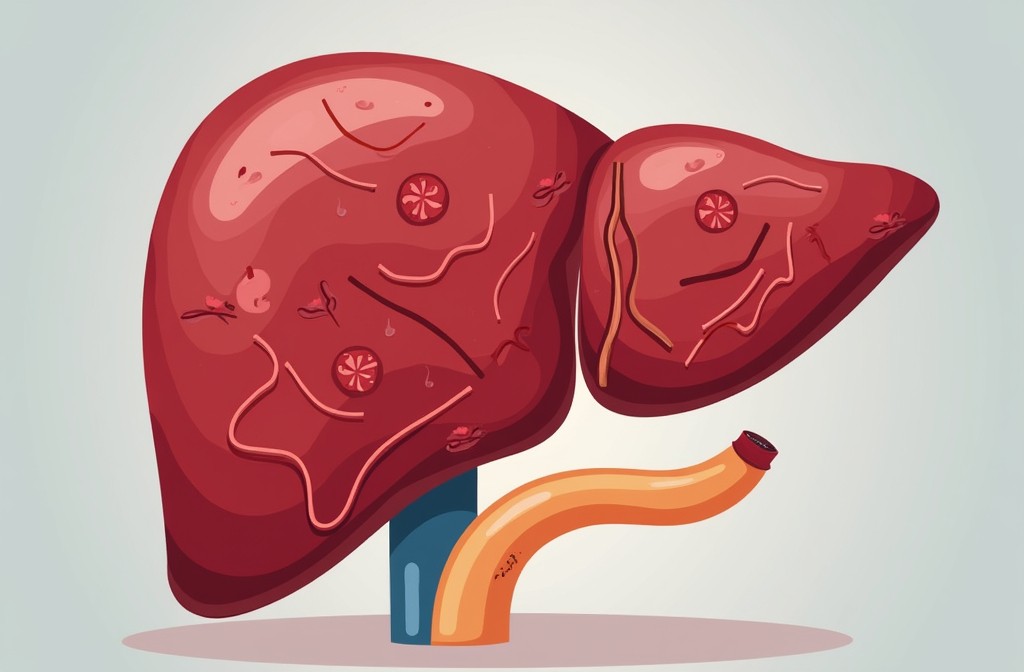Fatty liver disease is becoming an increasingly common health concern globally, but many people remain unaware of its early warning signs. From unexpected fatigue to abdominal discomfort, understanding how to recognize and respond to these symptoms can help prevent complications associated with fatty liver disease.

Warning Signs of Fatty Liver Disease
Fatty liver disease, also known as hepatic steatosis, occurs when fat builds up in the liver. Recognizing its symptoms early can make a significant difference in preventing the disease from progressing. Common but often ignored symptoms of fatty liver disease include:
- Fatigue: One of the most frequently overlooked symptoms, constant fatigue or tiredness is often attributed to other lifestyle factors but can indicate liver issues when persistent.
- Abdominal Discomfort: Pain or a feeling of fullness in the upper right side of the abdomen might be subtle, but it could be a sign of liver enlargement.
- Unexplained Weight Loss: A sudden, unintended drop in weight might indicate liver problems, despite being commonly seen as a positive occurrence.
- Weakness: General weakness or muscle wasting can also be indicative of liver disease.
- Jaundice: Although more common in advanced stages, yellowing of the skin and eyes can occur when the liver struggles with bile processing.
- Swelling in the Abdomen and Legs: Fluid retention can cause the abdomen and legs to swell, a condition known as edema.
Symptoms such as these should not be ignored. Seek medical advice for a comprehensive evaluation if any of these symptoms persist.
Who’s At Risk?
Several factors can increase the risk of developing fatty liver disease. Understanding these risk factors can help with early detection and prevention:
- Obesity: Increased body weight is a significant risk factor due to its tendency to promote fat accumulation in various organs, including the liver.
- Type 2 Diabetes: Those with diabetes are at heightened risk as insulin resistance can lead to liver fat accumulation.
- High Cholesterol and Triglycerides: Elevated levels can result in metabolic irregularities contributing to fatty liver.
- Metabolic Syndrome: This grouping of conditions — high blood pressure, high blood sugar, excess body fat around the waist, and abnormal cholesterol levels — significantly raises fatty liver risk.
- Excess Alcohol Consumption: Although non-alcoholic fatty liver disease (NAFLD) occurs without alcohol misuse, excessive drinking directly damages the liver.
- Certain Medications: Some medications might contribute to liver damage. For a deeper understanding, check out this article from GoodRx on how some medications can affect liver health.
For further insights, the MedlinePlus guide on fatty liver disease presents more detailed information on this condition.
Can Fatty Liver Disease Be Prevented?
Prevention is key when it comes to fatty liver disease. Here are some strategies that can aid in both prevention and management:
- Healthy Diet: Adopting a balanced diet that limits sugar, saturated fat, and alcohol is crucial. Refer to tips on managing diet with this resource from WebMD.
- Regular Exercise: Staying physically active can help maintain a healthy weight and reduce liver fat.
- Weight Management: Achieving and sustaining a healthy weight through balanced nutrition and regular exercise is essential in reducing risk.
- Regular Health Screenings: Routine check-ups with blood tests can help detect elevated liver enzymes, often the first indication of liver stress.
- Avoiding Harmful Substances: Limiting alcohol and being mindful of medication-related liver risks ("Drug-induced fatty liver disease: An overview of pathogenesis and ..." - ScienceDirect).
What To Do If You’re Experiencing Symptoms
If you suspect you might be experiencing symptoms of fatty liver disease, taking immediate steps is crucial:
1. **Schedule a Doctor's Visit**: A healthcare provider can perform tests such as blood tests, ultrasounds, or liver biopsies to assess liver health.
2. **Adopt Lifestyle Changes**: As advised above, incorporate healthy eating and regular exercise into your daily routine.
3. **Monitor Liver Function**: Regular follow-ups and tests will help track the condition's progress and effectiveness of lifestyle changes.
4. **Seek Specialized Care If Needed**: In severe cases, more specialized interventions may be necessary. Discuss the next steps with your healthcare provider.
Learn More About Fatty Liver Disease
To explore in-depth about fatty liver disease, its implications, and remedies, several resources provide extensive information. The MedlinePlus portal delivers a comprehensive look into this condition. Similarly, guidelines on dietary habits from WebMD furnish actionable steps for those looking to manage or prevent fatty liver. For an academic perspective, delve into the ScienceDirect article about drug-induced liver conditions.
Knowing the signs and seeking timely intervention can change the outcome. It's paramount to not only recognize symptoms but also to take proactive measures in caring for liver health before complications arise.




